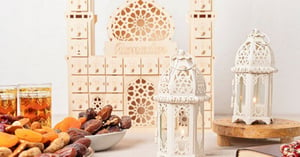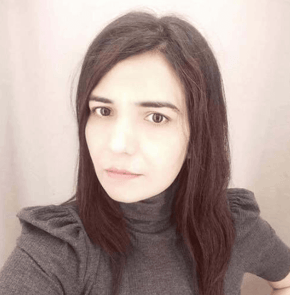Table of Contents
Introduction
Ramadan is a significant religious observance for Muslims around the world, and it is no different in Dubai. As a first-time visitor to Dubai during Ramadan, you may be wondering what to expect and how to best prepare for this month-long celebration.
In this blog, we will explore what Ramadan is, when it occurs, and its cultural significance in Dubai. Whether you are a resident or a tourist, understanding the customs and traditions of Ramadan in Dubai can help you fully appreciate and participate in this important event. So, let's dive in!
Ramadan is the ninth month of the Islamic lunar calendar and is observed by Muslims worldwide as a month of fasting, spiritual reflection, and charitable giving. During Ramadan, Muslims abstain from food, drink, and other physical needs from dawn until sunset.
The month of Ramadan is significant because it is believed to be the month in which the Quran, the holy book of Islam, was first revealed to the Prophet Muhammad.
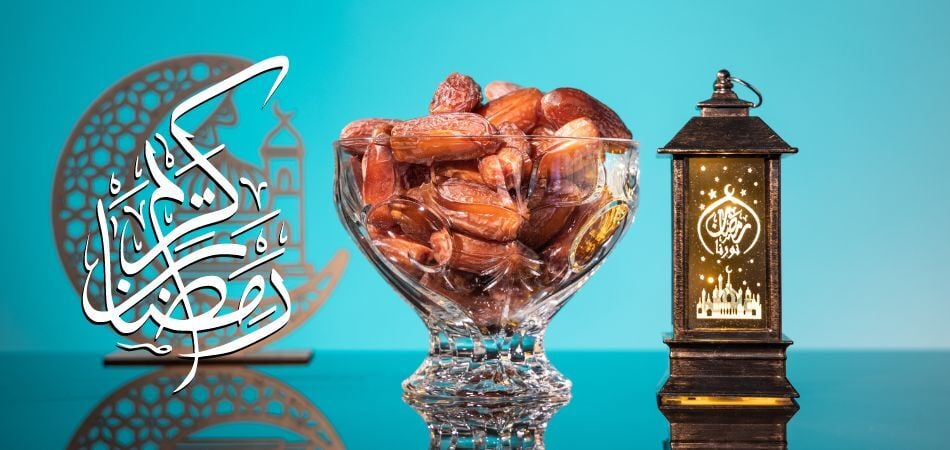
In Dubai, Ramadan is an important cultural event, with many of its traditions dating back centuries.
It is a time when families come together to break their fast, share meals, and participate in religious activities. One of the most significant customs during Ramadan is the iftar, the meal that breaks the fast at sunset.
In Dubai, you will find many iftar tents and buffets, where families and friends gather to enjoy traditional Emirati and Arabic cuisine. The evenings during Ramadan are also marked by spiritual activities, including tarawih prayers, which are performed after the night prayer.
Overall, Ramadan is a time for Muslims in Dubai and around the world to deepen their faith, engage in acts of kindness, and celebrate the traditions and customs of their culture.
By understanding the significance of Ramadan in Dubai, you can fully appreciate and participate in the events and activities that make this month so special.
When you rent a car in Dubai and get a traffic violation, rental companies like eZhire will be notified by the relevant authority and will handle the payment of the fine on your behalf.
Preparing for Ramadan in Dubai
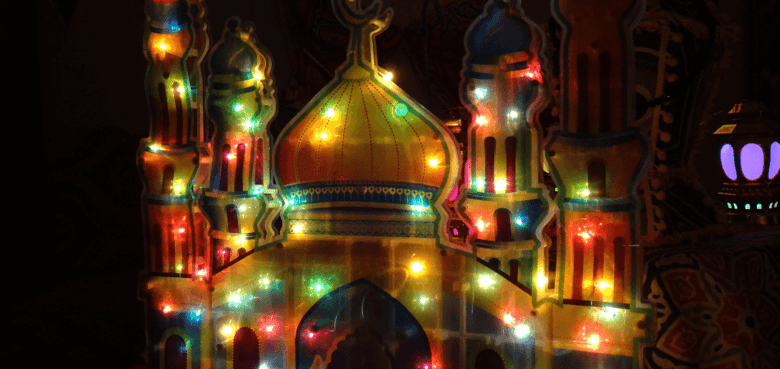
Ramadan is a month of spiritual reflection and worship for Muslims around the world, including those in Dubai.
In preparation for this holy month, there are several things individuals, companies, and the government do to ensure a successful and meaningful experience.
Preparations for Ramadan in Dubai typically begin weeks in advance, with individuals making plans for how they will observe the fast, including what time they will wake up for suhoor (the pre-dawn meal) and what they will eat to sustain themselves throughout the day.
Many also use this time to stock up on groceries and other essentials, as some stores may have different operating hours during Ramadan.
The government of Dubai also takes several steps to prepare for Ramadan, including adjusting working hours for public sector employees and providing additional resources and services to support the community during this time.
For example, Dubai's Roads and Transport Authority (RTA) may adjust public transportation schedules to accommodate the needs of those observing Ramadan.
Private companies in Dubai also play a role in preparing for Ramadan, with many offering special promotions and discounts to customers during the month.
Some companies may also adjust their working hours or schedules to accommodate employees who are observing the fast.
To prepare oneself for Ramadan in Dubai, it's important to prioritize self-care and wellness.
This may involve adjusting your sleep schedule in advance so that you can wake up early for suhoor, as well as ensuring that you're staying hydrated and eating nutritious meals when breaking the fast at iftar (the meal eaten after sunset).
It's also a good idea to be mindful of cultural norms and etiquette during Ramadan. This may include dressing modestly, refraining from eating or drinking in public during the day, and being respectful of those around you who may be fasting.
In summary, preparing for Ramadan in Dubai involves a combination of personal preparations, government adjustments, and private-sector support.
By prioritizing self-care, being mindful of cultural norms, and taking advantage of the resources available, individuals can have a meaningful and fulfilling Ramadan experience in Dubai.
Observing Ramadan in Dubai
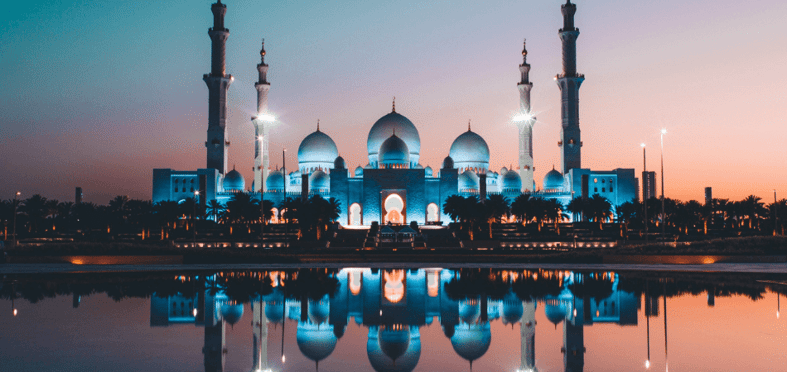
Ramadan is a holy month observed by Muslims worldwide, including those living in Dubai.
During Ramadan, Muslims fast from dawn until sunset, abstaining from food, drink, and other physical needs.
In this context, let's explore the typical daily routine, the importance of iftar and suhoor meals, etiquette for dining during Ramadan, and cultural activities and events that take place in Dubai during Ramadan.
The typical daily routine during Ramadan in Dubai starts with waking up before sunrise to have the pre-dawn meal called suhoor. After the suhoor meal, Muslims perform the Fajr prayer and start their day.
Throughout the day, Muslims engage in spiritual activities such as reciting the Quran, performing prayers, and reflecting on their lives.
The most critical part of the day during Ramadan in Dubai is the time just before sunset when Muslims break their fast. This meal is known as iftar and is usually shared with family and friends. It is a moment of joy and celebration, and traditional foods and drinks are served.
The suhoor and iftar meals are crucial because they provide the body with the necessary nutrients and energy to sustain the fasting period.
These meals are also opportunities for socializing, bonding, and sharing with family and friends. It is customary in Dubai to invite guests to share the iftar meal, including non-Muslims.
Etiquette for dining during Ramadan in Dubai involves showing respect for the customs and traditions of the occasion. Non-Muslims are expected to dress modestly and refrain from eating or drinking in public during the day.
It is also considered polite to accept an invitation to iftar, even if you do not fast.
Dubai is a city that comes alive during Ramadan with various cultural activities and events. For example, there are cultural exhibitions, religious lectures, and charitable activities such as feeding the poor and providing aid to those in need.
Dubai is also known for its lavish Ramadan tents where people can socialize and enjoy traditional food and drink.
In conclusion, observing Ramadan in Dubai is a unique experience that offers a glimpse into the rich culture and traditions of the UAE.
The daily routine, the importance of iftar and suhoor meals, the etiquette for dining during Ramadan, and cultural activities and events all contribute to the special atmosphere of this holy month.
Ramadan in Dubai for Tourists and Expats
Experiencing Ramadan in Dubai as a tourist or expat offers numerous benefits, such as a taste of the local culture, unique gastronomic experiences, and bustling nightlife. However, it is crucial to respect the cultural traditions during this time and navigate the city accordingly.
Dubai, with its cosmopolitan atmosphere and modern amenities, offers a comfortable and convenient destination for tourists and expats.
During Ramadan, visitors have the opportunity to immerse themselves in the rich heritage of Islamic practices and discover the more spiritual side of the region.
This religious occasion provides an unmatched experience that creates lasting memories for visitors from around the world.
One of the significant advantages of visiting Dubai during Ramadan is the opportunity to attend Iftar, the meal shared among family and friends after sunset to break the day-long fast.
Restaurants throughout the city offer special Iftar menus, featuring a variety of traditional Arabian dishes and other international cuisines.
These Iftar gatherings provide an excellent opportunity to sample local flavours and socialize with Dubai's diverse population.
During Ramadan, the city comes alive in the evening, with malls and stores remaining open well past midnight, offering extended shopping hours and discounts.
This period of increased activity allows for a unique shopping experience and an exciting exploration of the city's nightlife.
Additionally, visitors will witness the charitable nature of Dubai during Ramadan.
Many residents give generously to the less fortunate, partaking in acts of kindness and supporting various charitable organizations. Experiencing these acts of generosity and kindness truly showcases the best of Dubai.
Here you can find complete details about traffic fines in Dubai.
To show respect for the local culture and participate in the festivities, tourists and expats should keep the following tips in mind:
Be mindful of fasting hours: Eating, drinking, or smoking in public is prohibited during daylight hours, as the majority of the Muslim population will be fasting. Ensure to eat your breakfast and any snacks discreetly in private spaces.
Dress modestly: During Ramadan, it is crucial to be respectful of conservative Islamic customs. Ensure your clothing covers your shoulders, neckline, and knees when in public spaces. Seek out designated areas: In most shopping malls, there are designated areas where non-Muslims can eat and drink during the day. Be sure to find these areas and respect the rules set out for this purpose.
Learn about Ramadan traditions: Knowing the significance of the festival and the customs associated with it helps tourists and expats appreciate and respect the local practices even more.
Attend community events: Visit cultural centers, such as the Sheikh Mohammed Centre for Cultural Understanding, to learn more about the importance of Ramadan and participate in various activities promoting understanding and tolerance.
Adjust your schedule: Since the pace of life during Ramadan slows down during the day, it's essential to adjust your daily routine accordingly, planning activities for the evening and night to make the most of the vibrant atmosphere.
By understanding the customs associated with Ramadan and respecting them, tourists and expats can experience the unique cultural offerings that Dubai provides during this sacred time.
Through a combination of spirituality, community, and bustling nightlife, visitors can create unforgettable memories during their time in Dubai.
FAQs
1) What is Ramadan?
A. Ramadan is the holy month of fasting, prayer, and reflection for Muslims worldwide.
Q.2 When does Ramadan begin and end in Dubai in 2023?
A. Ramadan usually lasts for 29-30 days, depending on the sighting of the moon. The dates of Ramadan in Dubai may vary from year to year. but this year it will most likely fall on Thursday March 23rd.
Q.3 What changes during Ramadan in Dubai?
A. During Ramadan, Muslims fast from dawn to dusk, and refrain from drinking, eating, smoking, and engaging in any sexual activity. Non-Muslims are expected to respect these traditions in public.
Q.4 How do I respect Ramadan in Dubai?
A. Non-Muslims should dress modestly, avoid eating or drinking in public and be mindful of their behavior during Ramadan.
Q.5 Can I drink or eat in public during Ramadan in Dubai?
A. No, eating, drinking, or smoking in public during Ramadan in Dubai is not appropriate. It would help if you respected the local customs and traditions.
Q.6 Do I have to fast during Ramadan in Dubai?
A. Fasting during Ramadan is compulsory for Muslims, but non-Muslims are not required to fast. However, they are expected to respect those who are fasting.
Q.6 Is it appropriate to travel to Dubai during Ramadan?
A. Yes, it is appropriate to travel to Dubai during Ramadan. However, tourists and expats should be mindful of the local customs and traditions.
Q.7 Are there any special events during Ramadan in Dubai?
A. Yes, there are several special events during Ramadan in Dubai, such as Ramadan tents, Iftar parties, and cultural events.
These events offer an opportunity to learn more about the culture and traditions of Ramadan in Dubai.
Conclusion
In conclusion, the article highlights the key aspects of Ramadan in Dubai, including what to expect, how to prepare, and how to observe the customs and traditions respectfully.
Tourists and expats can enjoy a range of events and experiences during Ramadan in Dubai, such as visiting Ramadan tents and attending cultural events.
We encourage readers to experience Ramadan in Dubai for themselves, as it offers a unique and meaningful cultural experience.
With proper respect and understanding of the local customs, visitors can enjoy this special time and learn more about the traditions and values of the Muslim community in Dubai.





